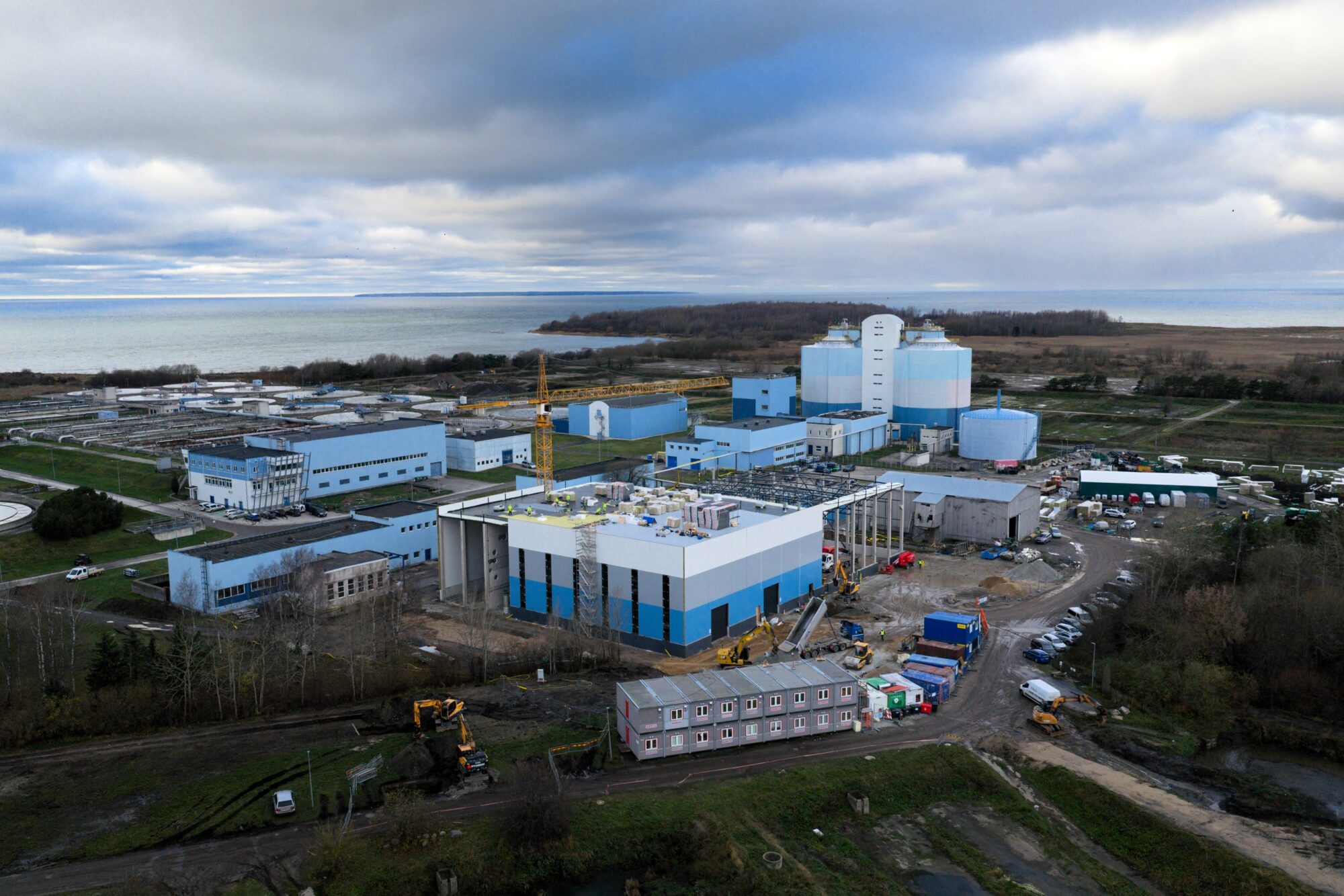The construction of Estonia’s first wastewater and seawater heat pump plant to be built by Utilitas in Paljassaare is progressing rapidly. Installation of the main equipment will begin next week, and today the project team laid the cornerstone for the station.
Upon completion, the emission-free heat pump plant with a total capacity of 110 MW will cover approximately a fifth of the annual heat consumption of Tallinn’s district heating network. It uses treated wastewater as heat source and raises the temperature to a suitable temperature for the district heating network with the help of heat pumps. As the amount of wastewater varies from day to day, seawater is added to the treated wastewater if necessary to ensure stable operation of the plant.
According to Priit Koit, CEO of the Utilitas Group, the innovative solution connects large industrial heat pumps to Tallinn’s district heating system, offering environmentally friendly and efficient energy production.
“We are making the production of thermal energy increasingly diverse by adding new electricity-powered production equipment, heat storage and digital solutions for optimisation, all of which will increase the reliability of the entire system and maintain the stability of the price of district heating. The Paljassaare heat pump plant will help us to efficiently use the available resources to provide heating for the residents of Tallinn, thereby reducing dependence on imported fossil fuels,” said Koit.
Four large heat pumps with a total capacity of 110 MW will be brought to the Paljassaare heat pump plant. In addition to other equipment, each heat pump includes, for example, an evaporator weighing 80 tonnes and 16 metres long. In addition, the approximately 3600 m2 building has a 1250 m3 bassin for mixing treated wastewater and seawater, as well as various additional equipment for pumping district heating water.
Utilitas started the construction of the wastewater and seawater heat pump plant and seawater pumping station in May 2025. The emission-free plant will start supplying heat to Tallinn’s district heating network in winter 2026. When the plant is completed, the CO₂ emissions of Tallinn’s heat supply will decrease by an estimated 100,000 tonnes per year, and the share of fossil fuel will fall below 10 per cent.
The main equipment of the plant will be supplied by the Swiss company Friotherm, which has installed large heat pumps in several European cities, including in Sweden and Finland. The main contractor of the construction works is KMG Infra OÜ, which specialises in the construction of complex engineering and technical facilities. The cost of the investment will be nearly 100 million euros.
